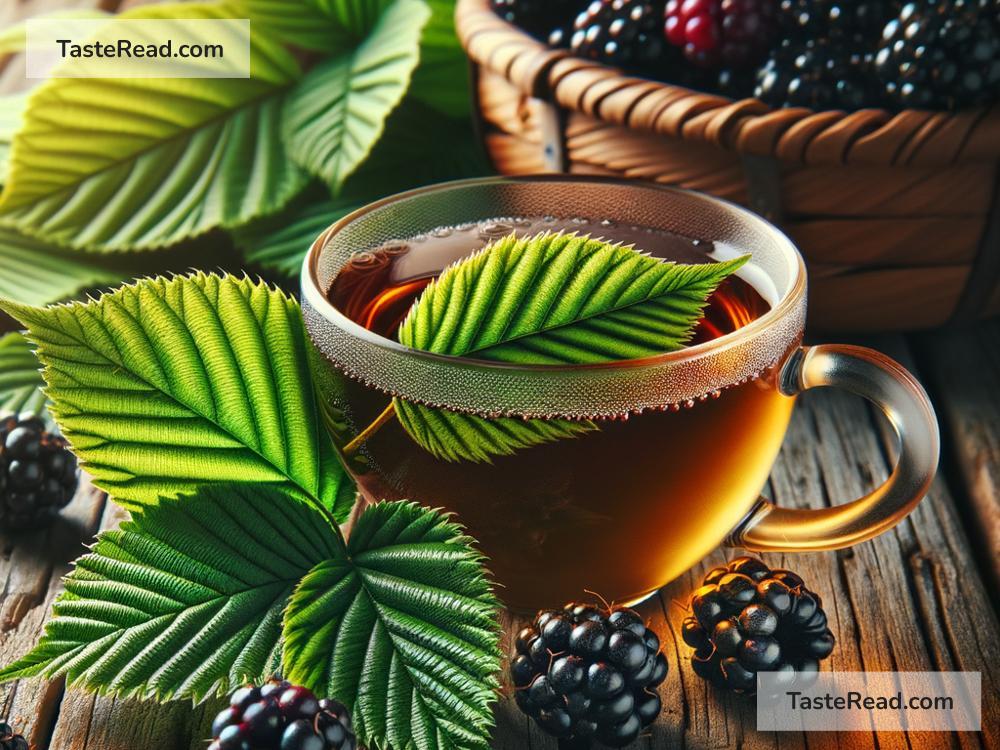The Surprising Health Benefits of Blackberry Leaves
When you think of blackberries, chances are you picture their sweet, juicy fruit that adds a burst of flavor to desserts, smoothies, or even snacks. But did you know that the leaves of the blackberry plant are just as impressive for your health as the berries themselves? While blackberry fruits often steal the spotlight, the humble leaves deserve their moment too. Packed with nutrients and medicinal properties, blackberry leaves have been used for centuries in herbal remedies—and modern science is now backing up many of these traditional uses.
In this article, we’re diving into the incredible health benefits of blackberry leaves and why you might want to make them a regular part of your wellness routine.
1. Rich in Antioxidants
Blackberry leaves are loaded with antioxidants, which are compounds that help your body fight free radicals. Free radicals are unstable molecules that can damage cells and lead to inflammation or diseases like cancer, diabetes, and heart disease. Antioxidants neutralize these harmful molecules, protecting your body from damage.
One specific type of antioxidant found in blackberry leaves is tannins, along with flavonoids and Vitamin C. These substances play a powerful role in strengthening your immune system and keeping your body healthy on a cellular level. Drinking blackberry leaf tea is one easy way to enjoy these benefits.
2. Soothing Digestive Issues
For centuries, blackberry leaves have been used to help calm digestive problems such as diarrhea, bloating, or upset stomach. The tannins in the leaves act as an astringent, which helps tighten and protect tissues in your gut. This effect can reduce irritation and smooth out digestive discomfort.
In years past, blackberry leaf infusions were even used to combat cases of mild food poisoning because of their ability to soothe the stomach lining. Today, many herbalists recommend blackberry leaf tea as a gentle and natural way to support gut health.
3. Anti-Inflammatory Properties
If you suffer from inflammation, whether it’s due to arthritis, injury, or a chronic condition, blackberry leaves could bring some relief. Thanks to their high content of tannins and flavonoids, blackberry leaves are known for their anti-inflammatory effects. Studies have shown that extracts from these leaves can help reduce swelling and calm irritated tissues.
This makes blackberry leaves a great option for anyone looking for a natural remedy to ease sore joints or muscles. Applying blackberry leaf poultices (a moist, crushed herbal paste) or drinking tea brewed from the leaves are two common ways to reap these benefits.
4. Promotes Healthy Skin
Your skin faces countless challenges every day, from pollution and UV rays to dryness and acne. Blackberry leaves contain powerful compounds that may help keep your skin healthy and glowing. Their Vitamin C content helps promote collagen production, keeping your skin firm and smooth, while their antioxidant properties protect skin cells from damage.
Blackberry leaves also have antibacterial properties, which can help fight acne-causing bacteria. A simple blackberry leaf tea wash might be just what your skin needs to stay refreshed. Additionally, the tannins can help tighten your pores, giving your skin a smoother appearance.
5. Supports Oral Health
Did you know blackberry leaves can also help you take care of your teeth and gums? Historically, these leaves were used as a natural remedy for oral problems like bleeding gums, sores, and bad breath. The tannins in blackberry leaves are believed to tone up gum tissue, while their antibacterial effects help keep harmful bacteria in check.
Rinsing your mouth with blackberry leaf tea can be an effective way to promote oral hygiene and soothe minor issues like gum sensitivity or discomfort.
6. Boosts Immune Health
Blackberry leaves are a natural ally for your immune system. They’re rich in Vitamin C, which is a key nutrient for fighting off sickness and boosting your defenses. On top of that, the antioxidants in the leaves help reduce oxidative stress, a condition that weakens the immune system over time.
Drinking blackberry leaf tea during cold and flu season is a great way to strengthen your body against common illnesses while enjoying a soothing, earthy flavor.
7. Natural Wound Healing
Blackberry leaves have long been used to aid wound healing. Their tannin-rich content acts as an astringent, tightening tissue and protecting the area from infection, while their antibacterial properties further prevent harmful bacteria from spreading. In traditional medicine, crushed blackberry leaves were often applied directly to cuts, scrapes, and minor burns to accelerate recovery.
While modern medicine is your best choice for serious injuries, blackberry leaves can complement minor wound care efforts at home.
How to Use Blackberry Leaves
Now that you know about the health benefits of blackberry leaves, you might be wondering how to incorporate them into your lifestyle. Here are a few simple ways:
- Blackberry Leaf Tea: The most common way to enjoy blackberry leaves is by brewing them into tea. Just steep the dried leaves in hot water for a few minutes. Add honey or lemon for extra flavor!
- Topical Application: Crush fresh leaves to make a poultice for wounds, skin conditions, or sore muscles.
- Skin Rinse: Use cooled blackberry leaf tea as a skin toner or acne rinse.
Final Thoughts
Blackberry leaves may not be as famous as their delicious fruit, but they’re a powerhouse of nutrients and natural remedies. With their antioxidant, anti-inflammatory, antibacterial, and digestive-soothing properties, blackberry leaves can contribute to your overall health in surprising and effective ways.
Whether you sip them as tea, apply them topically, or use them as a natural mouthwash, these leaves prove that little-known parts of plants can be brimming with benefits. Next time you spot a blackberry bush, take a moment to appreciate the leaves—they’re much more than just decoration!


